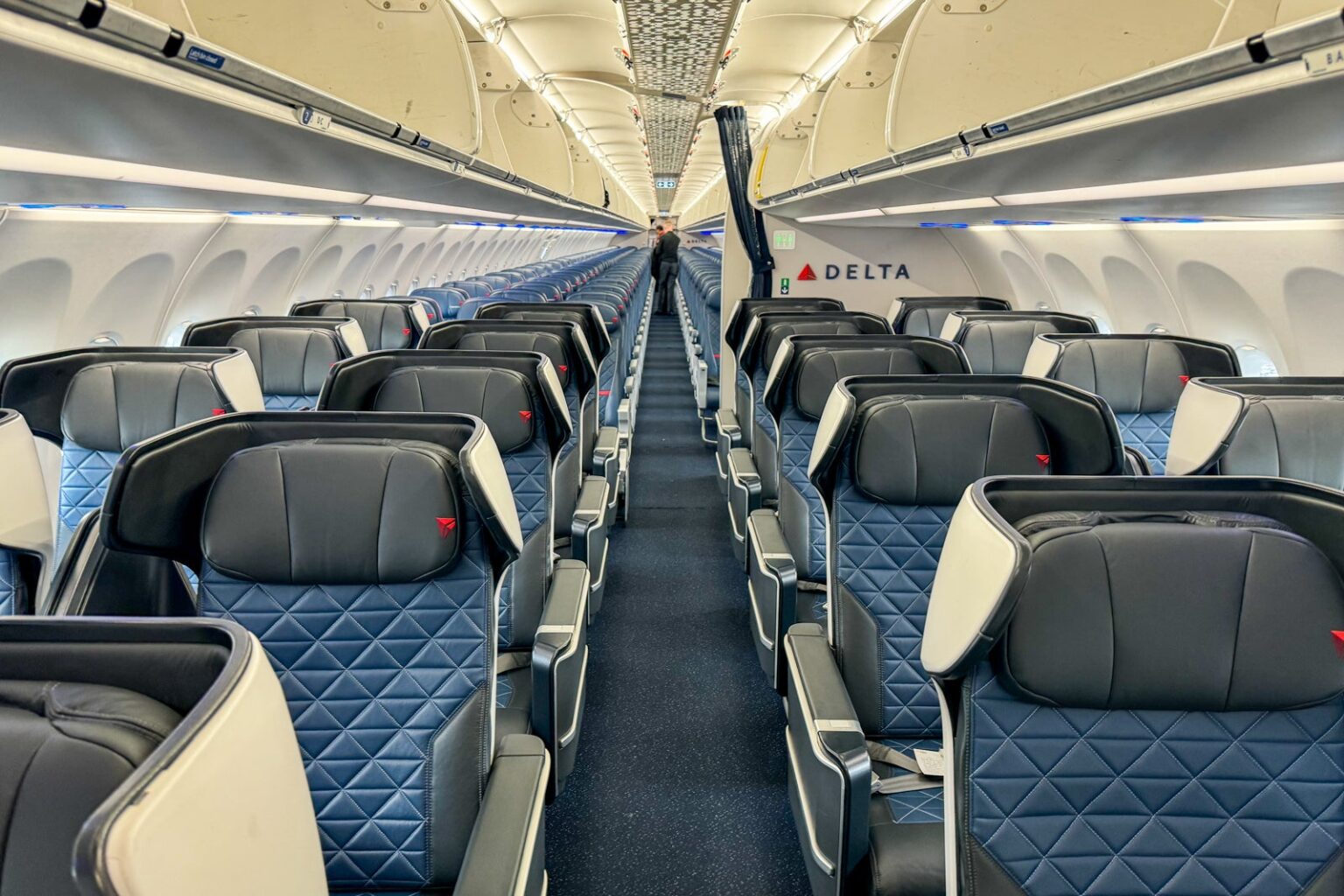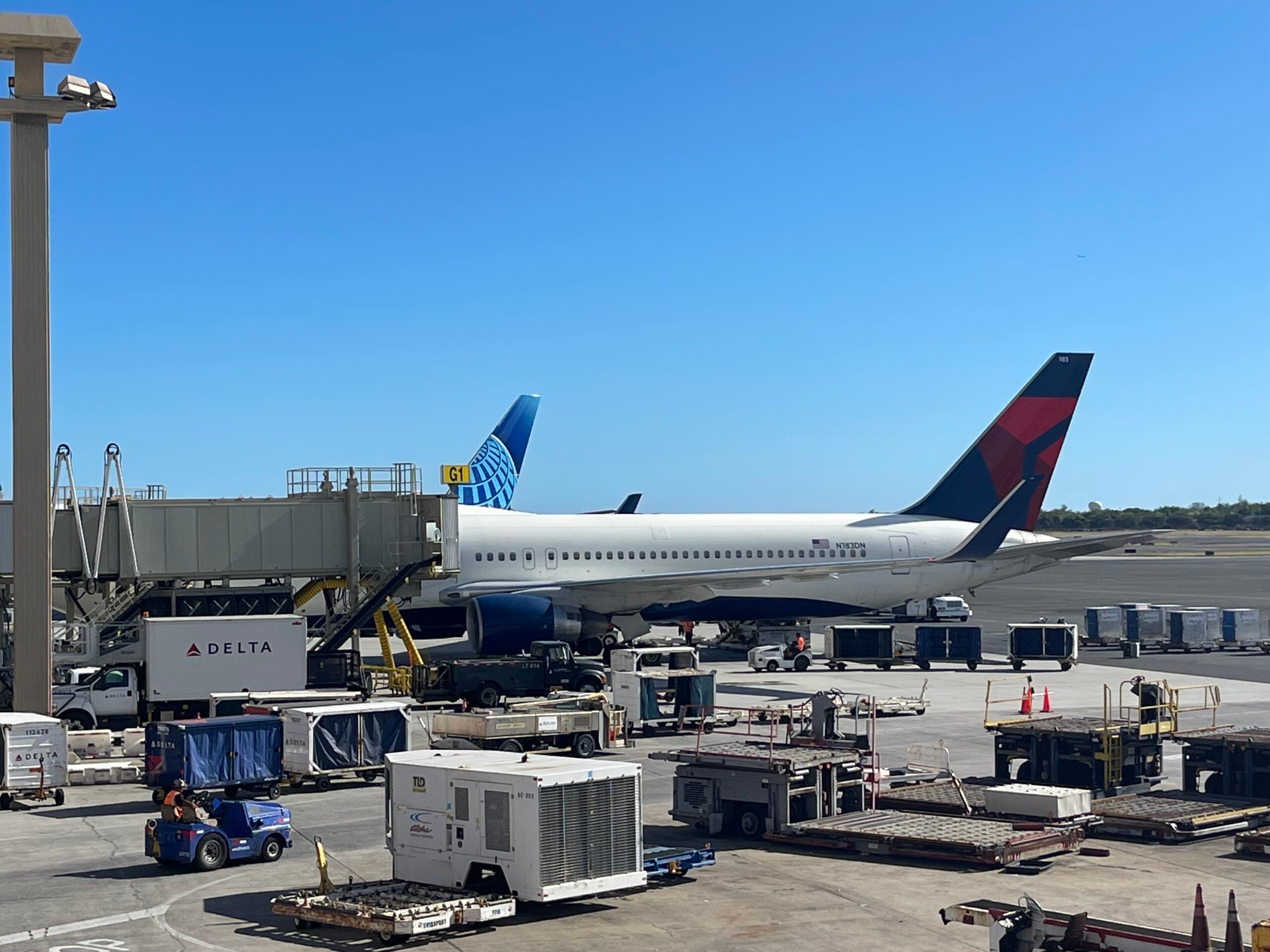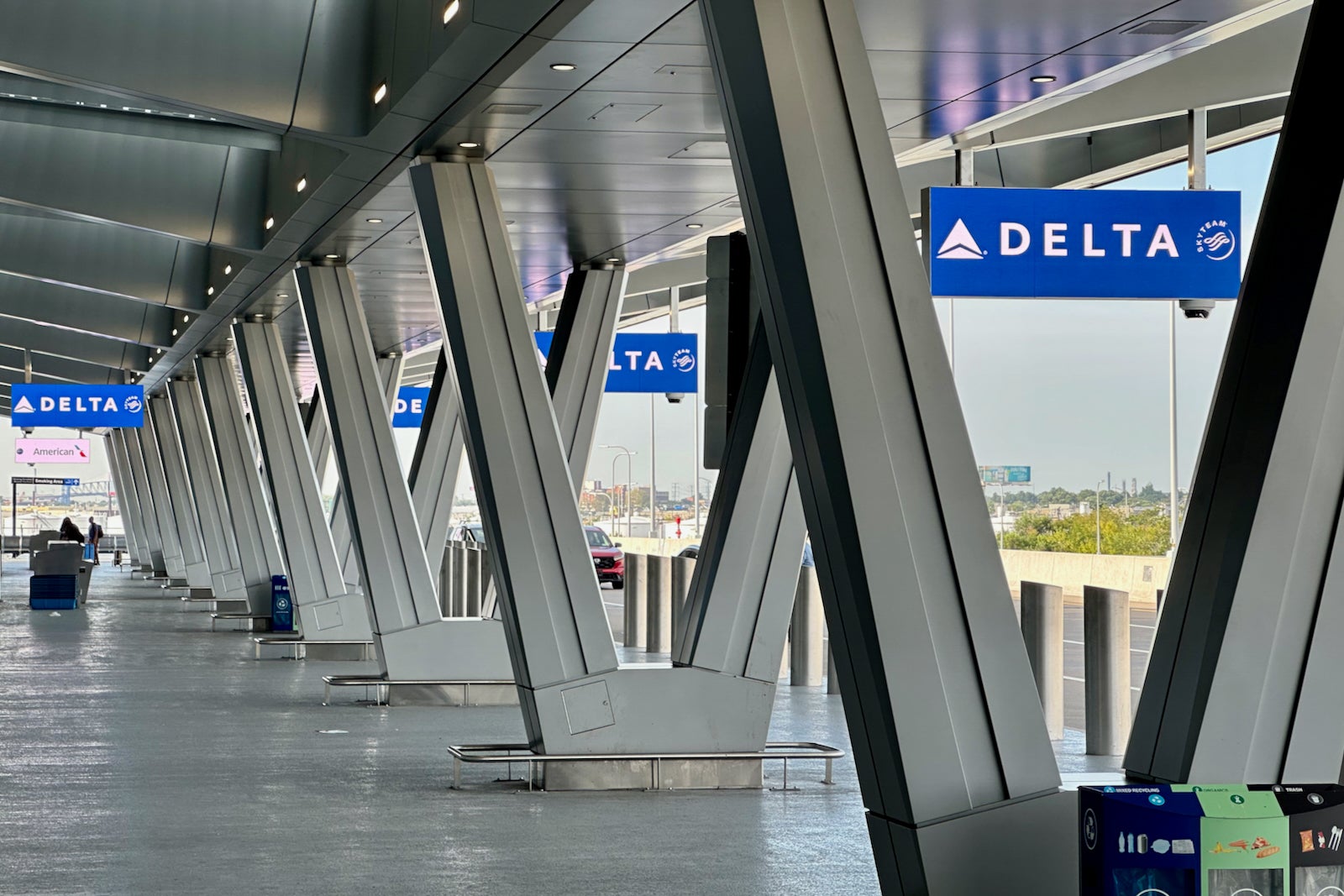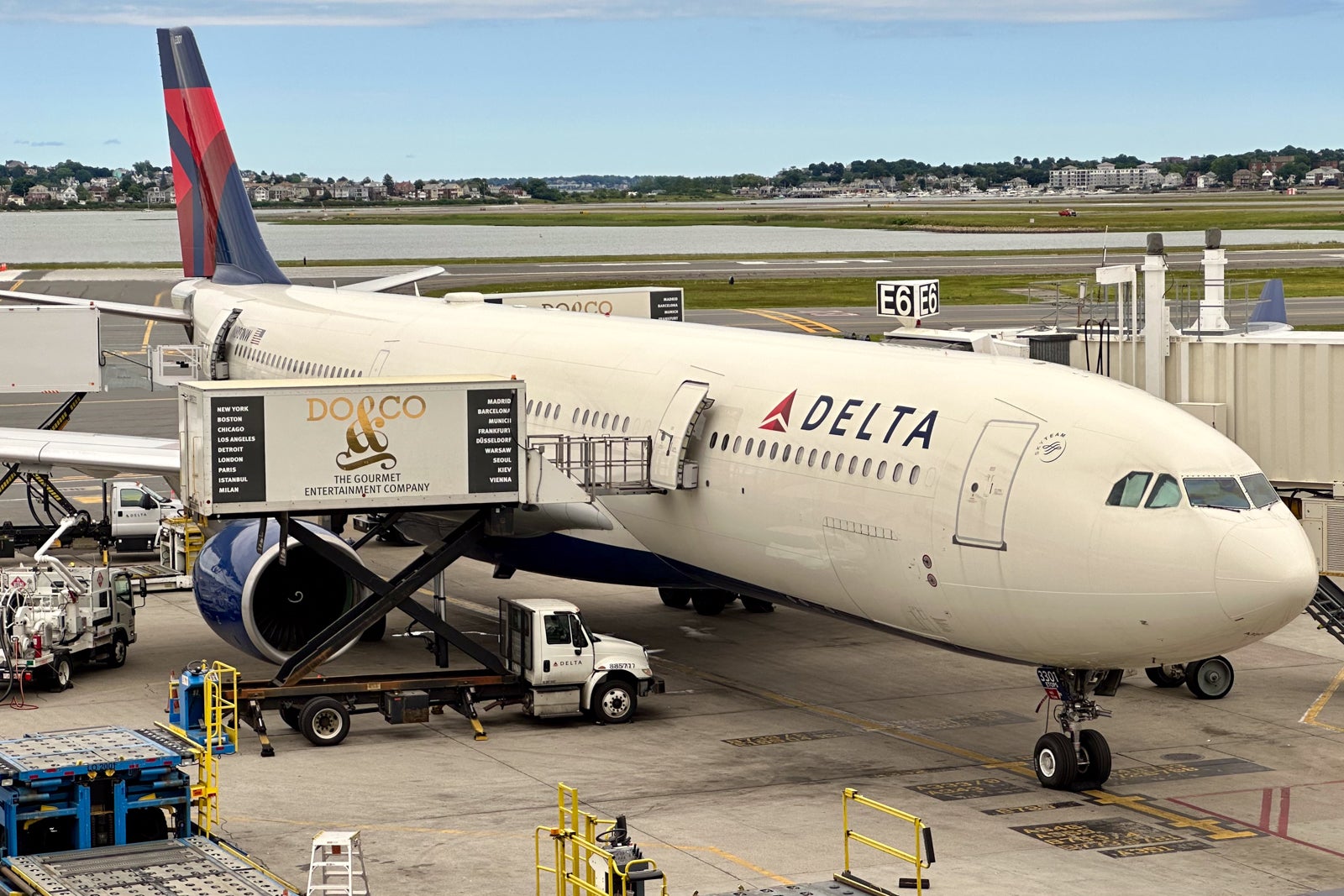It appears Delta Air Lines is not, in fact, immune from a problem that’s plagued most of the U.S. air travel industry over the past year: high costs and stiff competition.
The Atlanta-based carrier made over $1.3 billion between April and June, the company said Thursday. To be clear, that’s quite possibly the best any airline will do — although we’ll have to see how United Airlines does next week.
But Delta’s profitability fell below Wall Street expectations and its own performance in the second quarter last year.
Want more aviation news? Sign up for TPG’s free biweekly Aviation newsletter.
It’s the latest example of a major U.S. carrier’s disappointing financial results despite surging demand for air travel in recent months.
July 7 was the busiest day ever at U.S. airports, with the Transportation Security Administration reporting more than 3 million passengers were screened for the first time in history. Nine of the 10 busiest days ever at TSA checkpoints have come since Memorial Day weekend.
But it’s not translating to record success for airlines.
Stiff competition catches up to Delta, too
Carriers are facing higher costs for fuel, staff and maintenance — not to mention the effects of fierce competition owed to a marketplace flooded with capacity.
Between April and June, airlines flew a total of 5.6% more seats on domestic routes versus last year’s second quarter, according to data from aviation analytics firm Cirium.

Daily Newsletter
Reward your inbox with the TPG Daily newsletter
Join over 700,000 readers for breaking news, in-depth guides and exclusive deals from TPG’s experts
Domestic seats were up 6.5% over 2019.
As TPG reported in June, all those flights — and seats — have pushed fares down, given the laws of supply and demand. That’s made a glut of flight deals available that travelers haven’t seen in a few years. It’s been welcome news for customers but less so for airlines trying to turn profits.
Other airlines have reported struggling to fill all these seats and make money for months. Budget airlines have spent much of 2024 shuffling networks, often pulling planes out of especially competitive cities like Orlando.
Southwest Airlines lowered forecasts for its financials last month. American Airlines did the same — and its CEO recently bemoaned the toll that recent “discounting” activity has had on the airline. The loss of pricing power, combined with the fallout from a corporate sales strategy that backfired, could heighten the tension on its earnings call later this month.
But we’ve heard nary a concern (until now) from Delta, which has perpetually led all U.S. airlines in profitability since the coronavirus pandemic.
“Domestic industry seat growth has accelerated through the summer months, impacting yield performance in the main cabin,” Delta CEO Ed Bastian acknowledged, speaking on a conference call with analysts Thursday.
It begs the question: If Delta has run into a hiccup, what does that mean for its competitors — airlines it has consistently outperformed in recent years?
“We had viewed Delta as more immune,” wrote TD Cowen analyst Helane Becker on Thursday, adding that Delta’s results “will likely raise concerns about industry health” overall.
Plenty of silver linings
It’s certainly not all bad news for Delta.
The company brought in more money on Sunday than on any other day in its history, it said — a sign that it reaped the benefits of what was the busiest day ever at America’s airports.
Travel demand not waning
Delta isn’t seeing signs of the overall craving for travel fading, either.
“Our core customer base is healthy, and demand for premium products continues to outpace the main cabin,” Bastian said. The latter is a trend that would seemingly help Delta, with its heavy emphasis on premium seats, have a leg up over its competition.
The $1.9 billion it brought in during the second quarter through its American Express partnership doesn’t hurt, either. That figure got a boost from the 30% of Delta SkyMiles members, executives said, that now carry a Delta-Amex credit card (a percentage consistent with figures the company shared last year).
Business travel giving Delta a lift
Delta also believes the fall months will bring better results.
Early numbers show the corporate travel surge seen earlier this year could be a major boost following the lagging return of business trips that had plagued airlines between 2021 and 2023.
Corporate and business travel is generally higher-yielding for airlines than leisure travel, with customers tending to be less price-sensitive than travelers flying on their own dime.
Europe is still a boon — with 1 huge exception
But another post-pandemic trend TPG reported on earlier this year remains alive and well, Delta leaders noted Thursday. That is, travelers flying across the Atlantic in droves well beyond the hottest summer months.
“Whether … it’s retirees, whether or not it’s people with double incomes and without children who don’t have school concerns,” Delta president Glen Hauenstein said, “we are really seeing an extension into September, and October, and really through November, that European demand, across the board, is remaining strong.”
It’s surely welcome news for Delta considering the 2024 Paris Olympics will likely cause it to take a $100 million hit this summer, executives said; travelers not attending the Olympic Games often go out of their way to avoid the host city.
Industry capacity easing
Delta also stands to benefit from leaner flight schedules across the board later this year, it says, as numerous airlines slow (or, in some cases, reverse) the breakneck growth in domestic flights seen in recent years.
“Domestic capacity is clearly moderating,” Jamie Baker, an analyst at J.P. Morgan Chase, wrote Thursday while offering a still-bleak forecast for carriers that have struggled. “The bad news,” Baker added, “is that we’ve yet to identify a path back to sustained profitability for those airlines currently under duress.”
Optimistic it won’t lose ground
Still, Delta believes it will maintain its edge, even as others — like budget airlines — seemingly attempt to compete with the larger carriers by blocking middle seats and dropping change fees.
“Premium is more than just putting room in seats. It’s the overall experience,” Bastian said, noting the recent opening of the carrier’s Delta One Lounge at New York’s John F. Kennedy International Airport (JFK) — and the top spot Delta recently claimed in TPG’s 2024 best airlines report.
“The cost to serve has gone up for everybody, but especially the discounters,” Bastian said of budget airlines. “And the only way you can cover that is by providing a better experience.”
Delta expects it will scoop up about half of the U.S. airline industry profits in the first half of 2024. Other carriers will report their second-quarter financial results this month, starting with United — Delta’s top competitor this year — next week.
Related reading:




